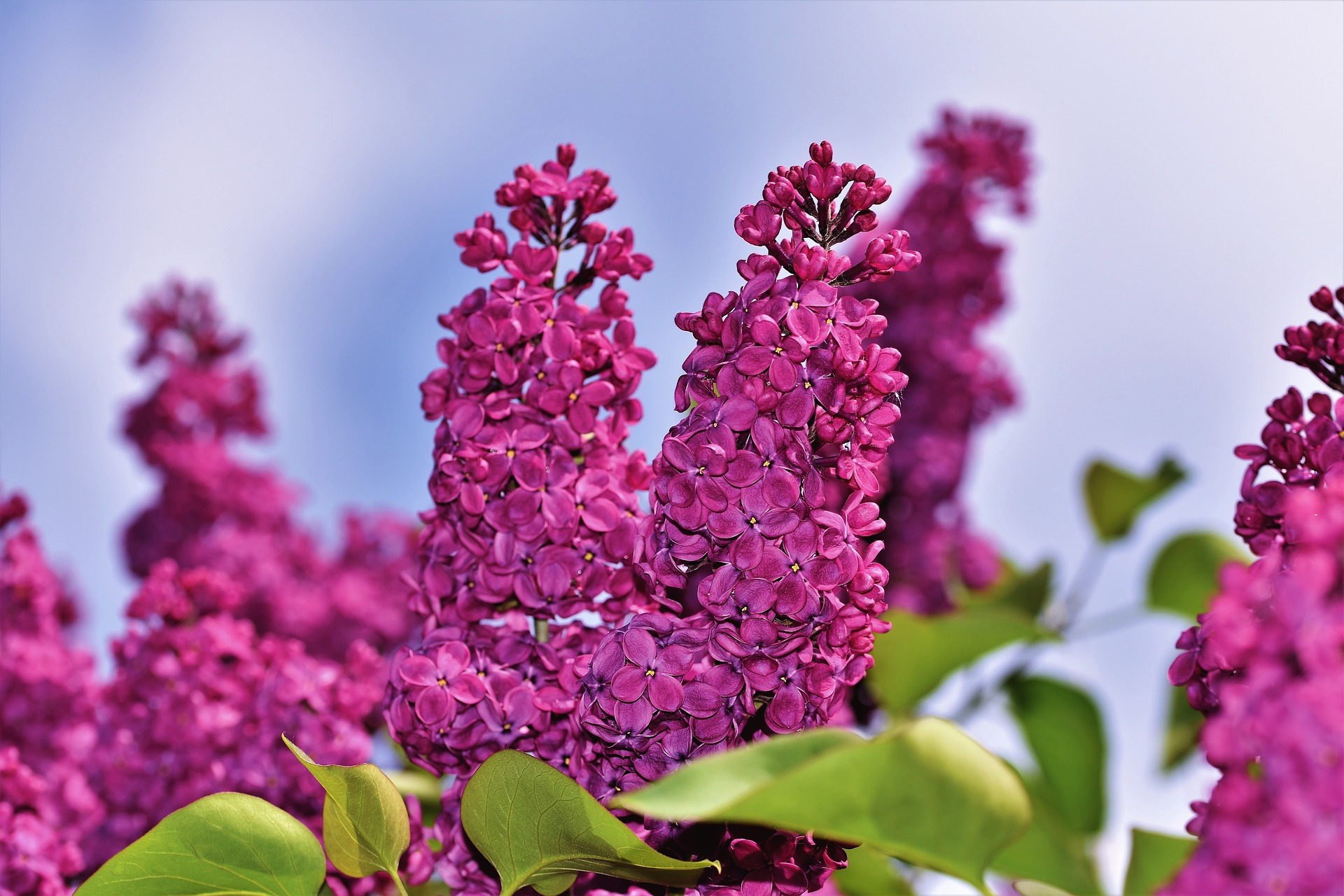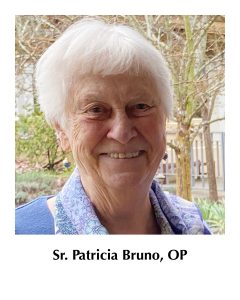- All
- Wisdom
- We Stand on Their Shoulders
- Vocation
- Uncategorized
- Stories Seldom Heard
- Spirituality
- Social Justice
- Prayer
- Peace
- Oneness
- Love
- Letting Go
- Lent
- Joy
- Inspirational Images
- Hope / Healing
- Holy Week
- Gratefulness
- God's Presence
- General News Stories
- Forgiveness
- Finding God
- Faith
- Easter
- Dominican Saints
- Discipleship
- Courage
- Christmas
- Catholic Sisters Week
- Care of the Earth
- Blessing
- Beauty
- Advent
- #justiceOPportunity
“April is the cruellest month breeding lilacs out of the dead land”
Sr. Patricia Bruno, OP

273rd Edition, April 2022
 Welcome to Stories Seldom Heard (SSH). When I was thinking about writing this article, thinking out loud, I whispered, “April.” After a brief pause, these lines echoed in my heart. They are the first lines of T.S. Eliot’s poem, The Waste Land. “April is the cruellest month breeding lilacs out of the dead land….” It is a startling image of both the devastation and hope we hold in our hearts. It mirrors our emotions as we journey these last weeks of Lent experiencing the crosses of our world and our personal lives and wait in hope for our collective Resurrection.
Welcome to Stories Seldom Heard (SSH). When I was thinking about writing this article, thinking out loud, I whispered, “April.” After a brief pause, these lines echoed in my heart. They are the first lines of T.S. Eliot’s poem, The Waste Land. “April is the cruellest month breeding lilacs out of the dead land….” It is a startling image of both the devastation and hope we hold in our hearts. It mirrors our emotions as we journey these last weeks of Lent experiencing the crosses of our world and our personal lives and wait in hope for our collective Resurrection.
As we read the news, we can only imagine the depth of the suffering of people throughout the world. The trauma they experience and our own personal pain have traveled with us during our Lenten pilgrimage. The deaths, destruction, and millions of refugees that we see every day cannot be set aside. The stories and images lay heavy on our hearts and spirits, as they must, as we face the reality of sin in our world and name it. We are also conscious of the stories of grace and hope in what seems like hopeless situations. These stories of selfless love and compassion towards friends and strangers flood our memories and conversations.
Saint Teresa reminds us that the spiritual journey is a journey of consciousness. It is a journey of becoming deeply aware of both the grace and disgrace of our personal and collective decisions. It is not a gentle journey, especially in our times that are difficult, desolate, or even experienced as hopeless. Yet, when we face these situations honestly and respond justly and compassionately, we contribute to the physical and spiritual transformation of the world. These times can help us become who we are created to be, lovers of God and one another.
When darkness is thought of in this way, it does not take the brutality or pain away, but it does help us see and understand the mysteries of life and death more clearly. Poets, prophets, and mystics help reveal the paradox of living consciously and seeking the wisdom of God. The words of Theodore Roethke, a poet, and writer echo this paradox. “In a dark time, the eye begins to see.” The Prophet Isaiah says, “ I will give you treasures out of the darkness, and riches that have been hidden away” (Is. 45:3).
The kind of darkness we are talking about now is not an evil one, but rather a deep understanding of our limits and a desire to be drawn into the Mystery of God. T.S. Eliot reminds us that darkness is a lonely place. Yet, if we can have the patience to wait and be open to the Spirit of God, God will give us new sight -a truer awareness.
I said to my soul, be still, and let
the dark come upon you
which shall be the darkness of God.
As, in a theatre,
the lights are extinguished, for the scene to be changed
with a hollow rumble of wings,
with a movement of darkness on darkness…..
I said to my soul, be still, and wait without hope
For hope would be hope for the wrong thing; wait without love
For love would be love of the wrong thing; there is yet faith
But the faith and the love and the hope are all in the waiting
Wait without thought, for you are not ready for thought:
So the darkness shall be the light,
and the stillness the dancing. (1)
It does not take long when we listen to the words of scripture, prophets, and poets to realize that even though we are a people who sit in the darkness of suffering, loneliness, and doubt, we are also people of hope waiting for the light of the next day’s sun. In our waiting, we feel our vulnerability as well as our connectedness to one another. Because of our shared fragile humanity and our awareness of God’s abiding presence, we can sit with the broken “and carry their secret needs in the deepest silence of our hearts” (2). Together we carefully listen for the whispers of hope. Together we squint our eyes and try to see what we can do to make a difference. We focus our attention on how we can best respond as humans, born of the breath of God and the dirt of the earth. Meister Eckhart, O.P., the great Dominican saint and mystic, speaks of the creative force of darkness and its rich revelation.
What is darkness?
What is its name?
Call it: an aptitude for creativity
Call it: a rich sensitivity that will make you whole
Call it: your potential for vulnerability. (3)
Even though our family and friend gatherings have begun to expand, I have found a quieter, more serious, and reserved spirit present among us. People are genuinely seeking wiser answers to the befuddling questions we face each day. Listening is more active and attentive. In a variety of ways, I hear people praying for the gifts of the Holy Spirit: Wisdom, Counsel, Fortitude, Wonder-Awe, Knowledge, Piety-Prayer, and Understanding. We realize that we do not have the answers to the enormous questions before us. But…
It may be that when we no longer know
What to do
We have come to our real work
And that when we no longer know
Which way to go
We have begun our real Journey
The mind that is not baffled
Is not employed
The impeded stream
Is the one that sings. (4)
May our prayers and actions heal the broken, support the weary, encourage the prophets and rejoice with those who are clear-sighted and open-hearted.
- The Complete Poems and Plays, T. S. Eliot, Harcourt, Brace and Company, New York, 1952. This quote comes from East Coker, one of the poems that makes us the Four Quartets. 127
- Original Blessing, Matthew Fox, Bear and Company, Santa Fe, New Mexico. This quote from Meister Eckhart is on page 157.
- Meditation with Mechtild of Magdeburg
- Wendell Berry, “Our Real Work,” Standing by Words. 1983
